Tucked in the shadow of the Jade Dragon Snow Mountain in northwestern Yunnan, Lijiang is more than just a picturesque old town—it’s the living heartland of the Naxi people, one of China’s most fascinating ethnic minorities. With their distinctive dress, Dongba script, melodic ancient music, and deep reverence for nature, the Naxi culture feels like a slow-burning lantern gently lighting the past.

For travelers seeking a culturally immersive experience surrounded by snow peaks, cobbled streets, and ancient customs, a Naxi-style journey through Lijiang offers exactly that.
A Glimpse Into the Naxi Past
The Naxi people, numbering around 300,000 today, are believed to be descendants of ancient nomadic tribes who migrated south from the Qinghai-Tibet Plateau. Over centuries, they developed a rich blend of Tibetan, Han, and indigenous elements, which came to shape their unique language, spiritual traditions, and social customs.
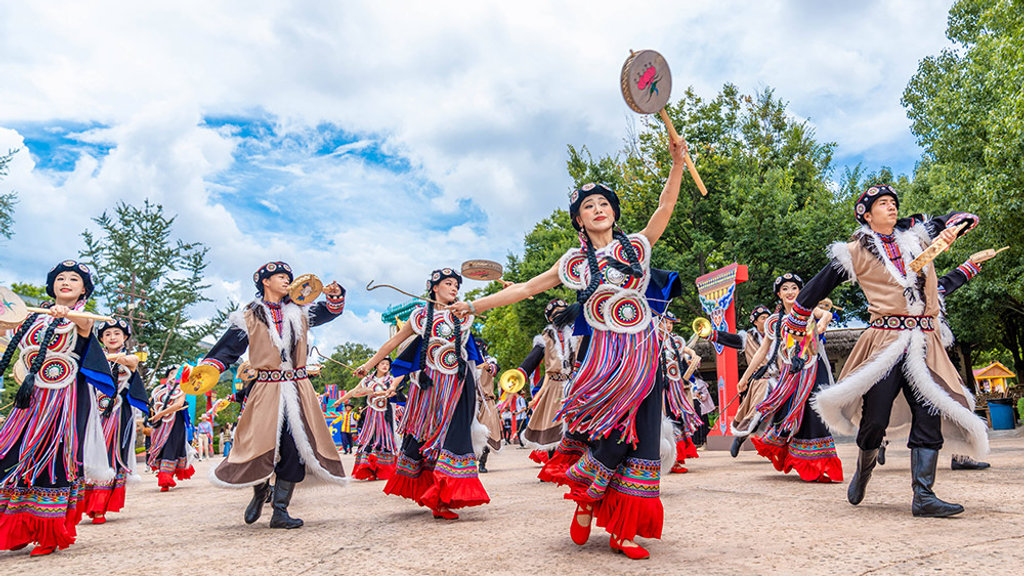
Unlike many other patriarchal cultures, Naxi society retained strong matrilineal characteristics. This is especially true among those living in more remote areas, such as Yongning near Lugu Lake. Here, the Mosuo people—often considered part of the broader Naxi group—follow a matriarchal “walking marriage” tradition.
Dongba Culture: Where Words Are Symbols and Nature Is Sacred
At the heart of Naxi heritage is Dongba culture, a shamanic religious tradition led by Dongba priests. These spiritual leaders preserve the Dongba script, the world’s only living pictographic writing system. Each character is a small painting—symbolic, poetic, and mysterious.
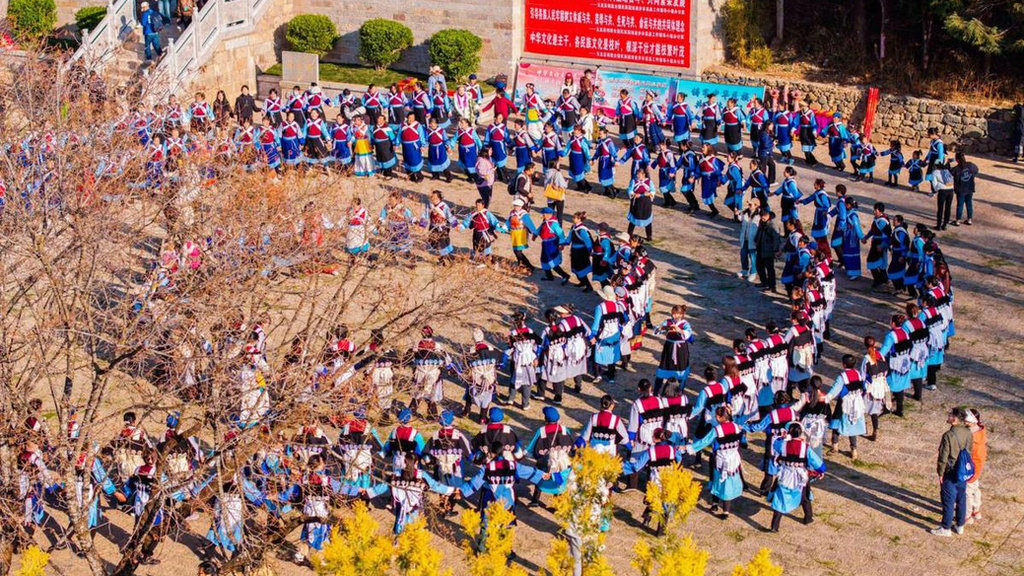
Visitors can learn more about this script at the Dongba Culture Museum in Lijiang. They can even try their hand at painting a few symbols during a hands-on workshop. Many local Naxi artists continue to use the script in scrolls, wood carvings, and ceremonial paintings.
The Naxi also hold deep animistic beliefs, revering mountains, rivers, and ancestors. Jade Dragon Snow Mountain (Yulong Xueshan) isn’t just a scenic backdrop—it is a sacred entity, considered the embodiment of Sanduo, the Naxi guardian deity. During festivals, offerings and prayers are made in honor of this mighty mountain spirit.
Naxi Music and Artistic Legacy
One of the most enchanting experiences in Lijiang is hearing Naxi Ancient Music. This oral musical tradition blends Confucian court melodies, Daoist rituals, and local folk tunes. The instruments—such as the pipa, erhu, and ancient flutes—are often over a century old. The Naxi Concert Hall in Lijiang Old Town hosts nightly performances led by elderly musicians who have devoted their lives to preserving this intangible heritage.
In visual arts, embroidery, silverwork, and tie-dye textiles reflect generations of Naxi craftsmanship. Their traditional architecture, visible throughout Shuhe Ancient Town and village courtyards, combines stone and timber structures with open-air courtyards. These are often adorned with floral wood carvings and flowing water channels.
Festivals and Rituals
If you time your visit well, you can witness the vibrant energy of Sanduo Festival. This festival is celebrated on the 8th day of the 2nd lunar month. It is one of the most important holidays for the Naxi. Villagers from surrounding areas hike up to Yulong Snow Mountain to offer sacrifices, play music, and dance in traditional attire.
Another seasonal highlight is the Torch Festival. This festival is shared with the Yi and Bai communities. Nighttime processions light up the village paths with fire and folklore. These festivals offer a window into the deeply rooted spirituality and social harmony of the Naxi people.
Lijiang’s Top Naxi-Connected Travel Spots
Begin your journey in Lijiang Old Town, a UNESCO World Heritage Site famed for its maze-like alleys, Naxi-style wooden homes, and stone bridges that span gentle canals. As you wander, you’ll hear the soft strumming of traditional instruments and the murmur of tea drinkers in flower-filled courtyards.
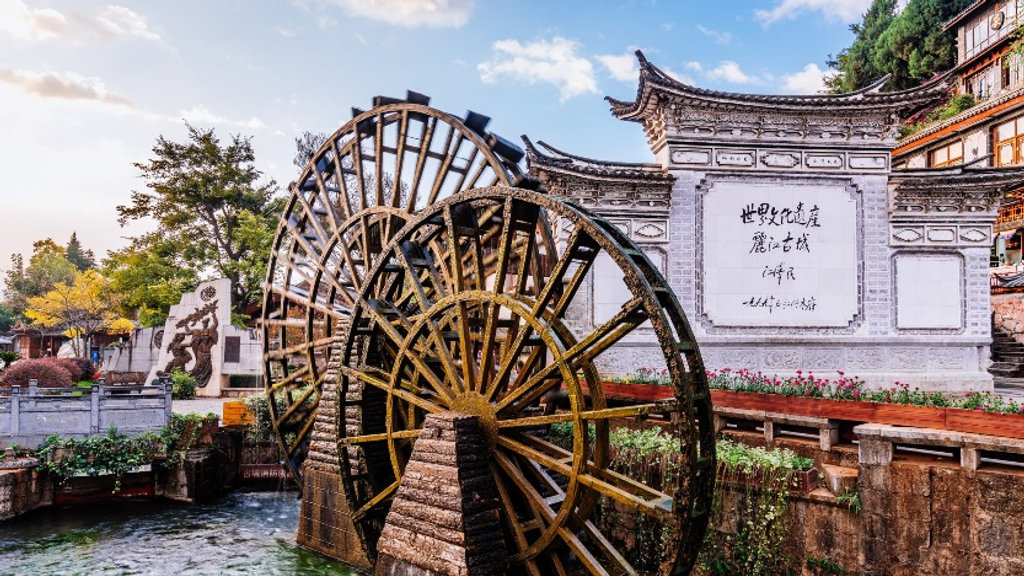
Northwest of the old town lies Shuhe Ancient Town. This quieter, older settlement once served as a crucial stop on the Ancient Tea Horse Road. Shuhe is often called the “original Lijiang” and retains a strong Naxi atmosphere. Here, you can find daily markets, Dongba calligraphy stalls, and small performance squares.
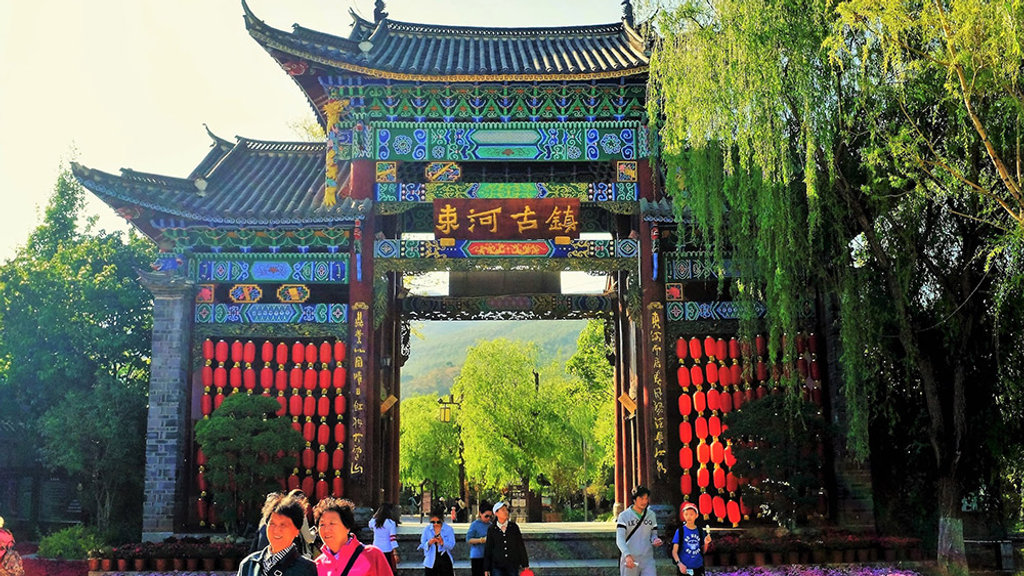
No trip is complete without visiting Yufeng Temple. This charming Tibetan-Naxi Buddhist temple is nestled at the foot of Jade Dragon Snow Mountain. The temple’s ancient camellia tree, over 500 years old, blooms spectacularly in spring and is revered as a natural treasure.
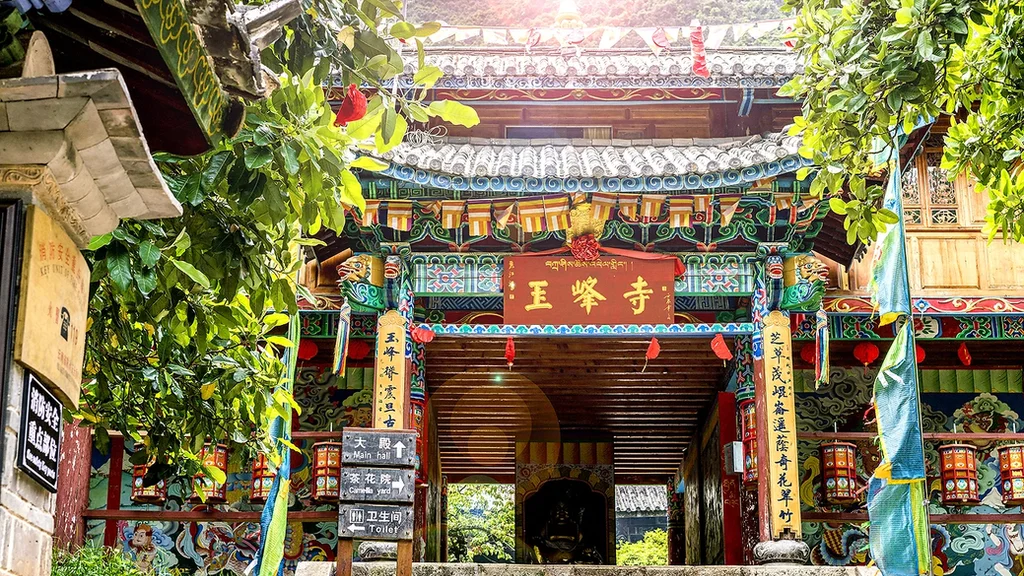
To deepen your cultural experience, consider a stop at Baisha Village. Here, Naxi mural art from the Ming Dynasty still survives on temple walls. These murals blend Tibetan, Naxi, and Han iconography in a visual symphony of color and belief.
For those interested in local daily life, the Naxi Market near Black Dragon Pool is a lively hub. Here, spices, handwoven bags, and fresh produce paint a picture of community living.
A Taste of Naxi Cuisine
Food in Naxi culture is hearty, seasonal, and deeply satisfying. Staples include barley cakes, yak butter tea, salted pork, and preserved vegetables. Don’t miss a chance to try Lijiang baba (a flaky, savory flatbread), Naxi grilled ribs, or a steaming pot of mushroom hotpot made with foraged wild fungi from the nearby forests.
Local teahouses, especially in Shuhe and Baisha, are perfect places to sip Pu’er tea. Enjoy peaceful garden views while learning about tea culture from Naxi hosts.
A Journey into Living Heritage
Traveling through Lijiang and immersing in Naxi culture is like stepping into a moving painting. Here, mountains whisper stories, music floats like incense, and ancient customs are still lived with gentle pride.
Whether you’re tracing pictographs with a bamboo brush, listening to timeless melodies beneath the stars, or sharing tea with a local grandmother, the Naxi world welcomes visitors with quiet dignity and deep cultural layers.
It’s not just a destination. It’s a rhythm, a story, and a feeling that stays long after your footsteps fade from the cobbled streets.
Contact us today to craft your dream China adventure!

